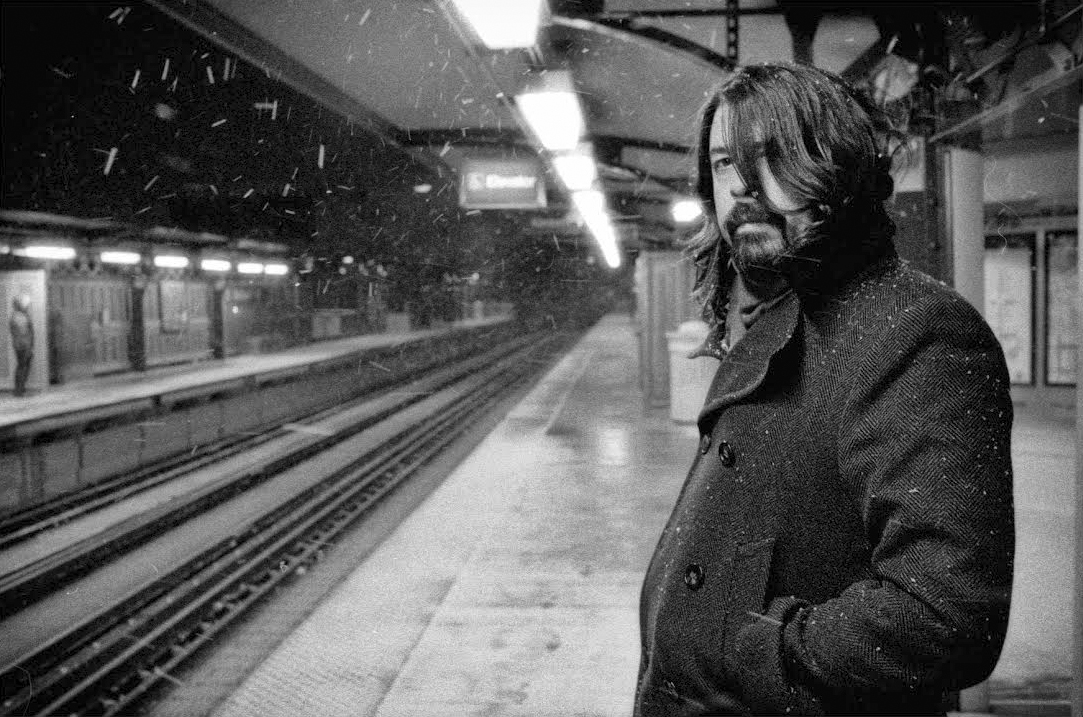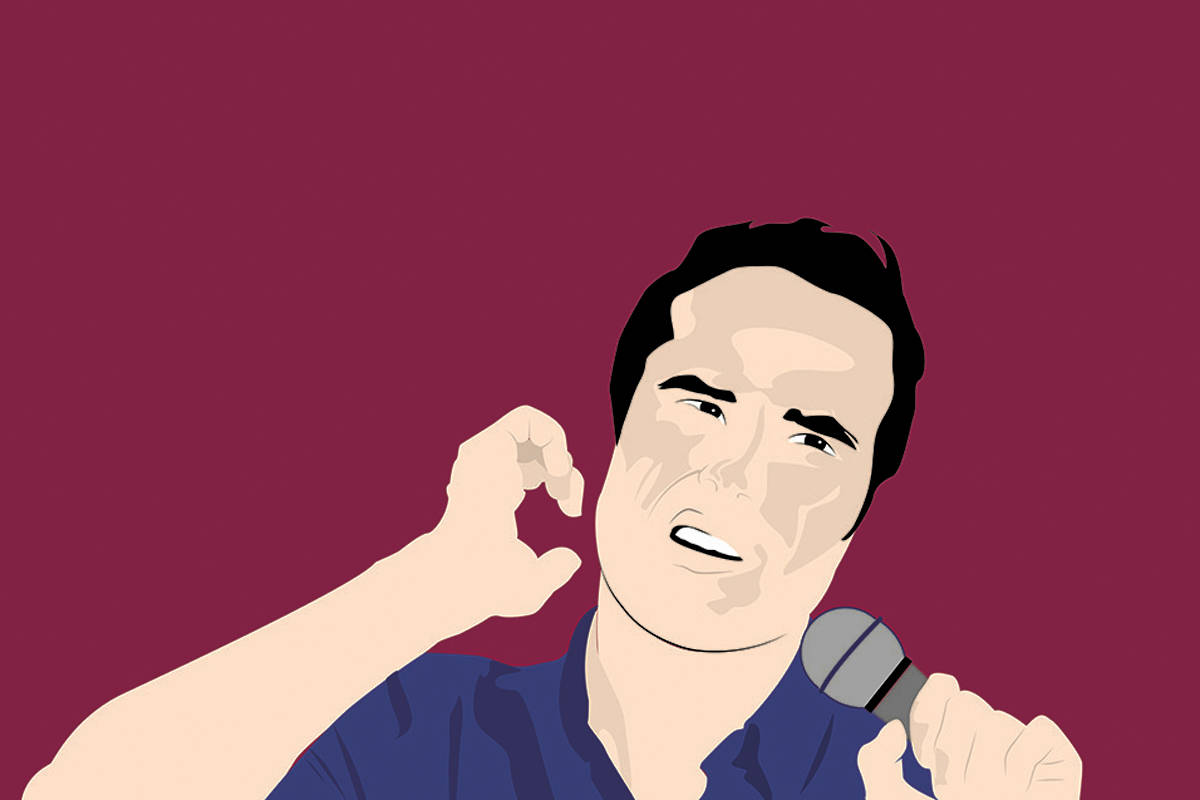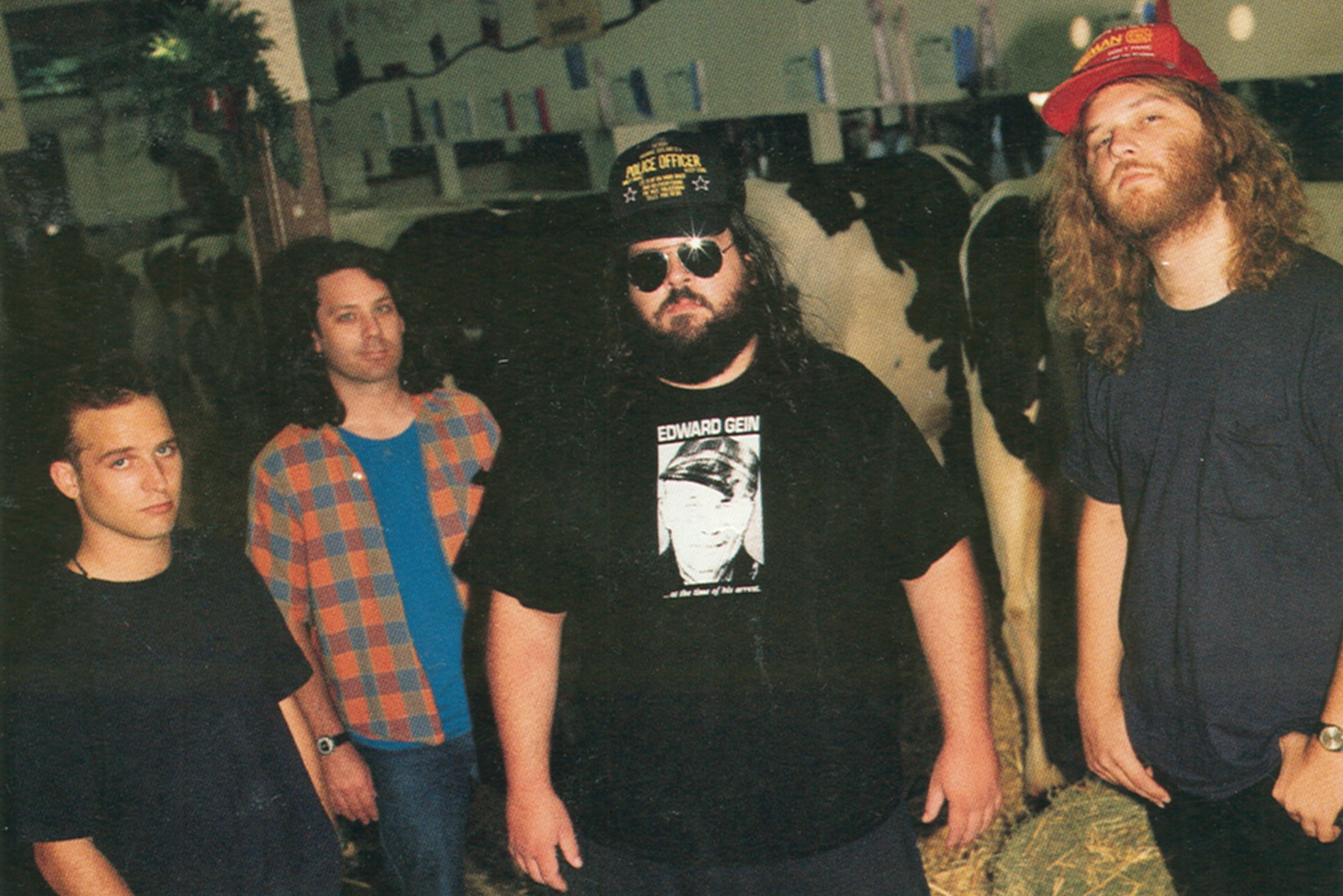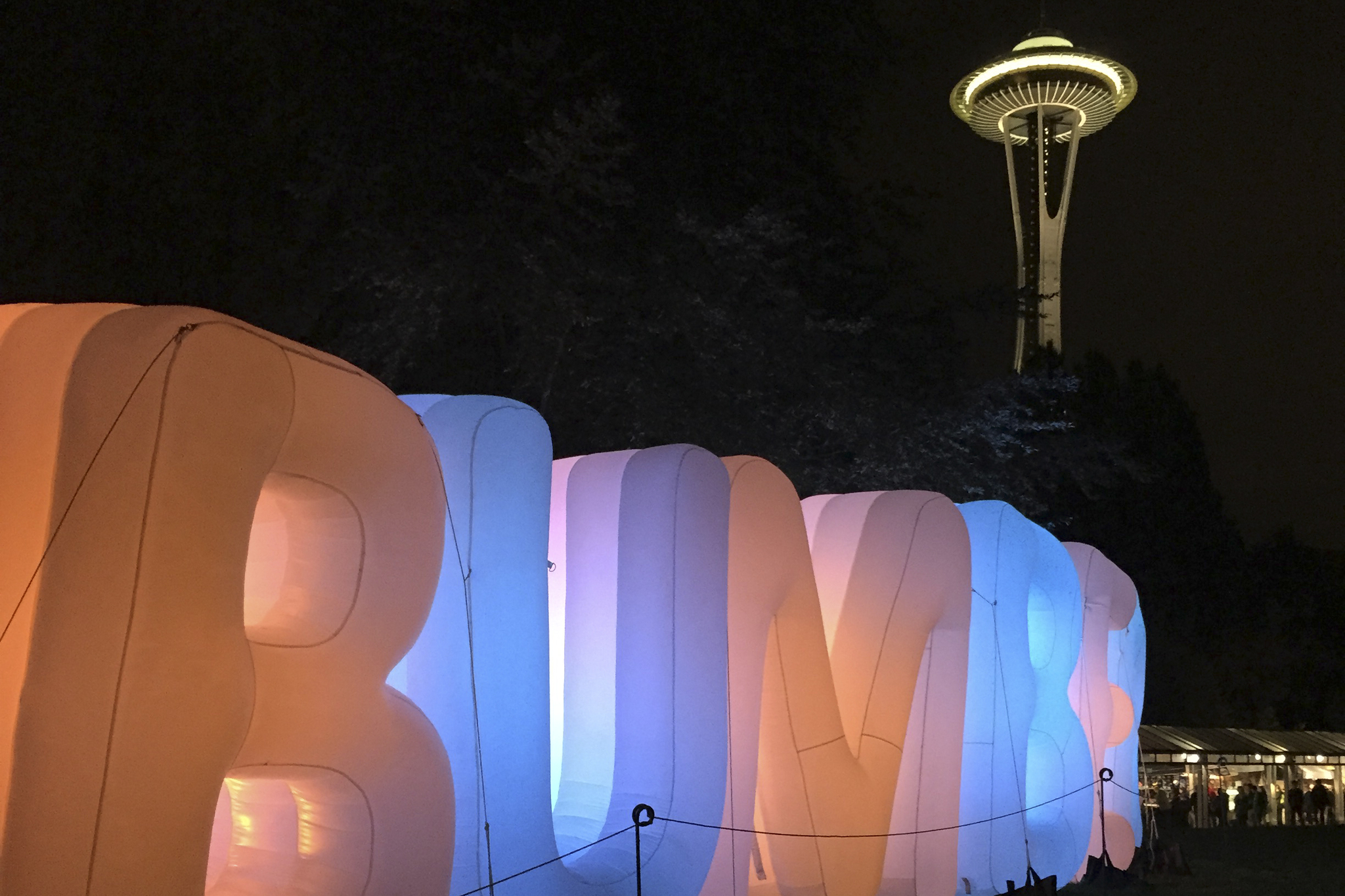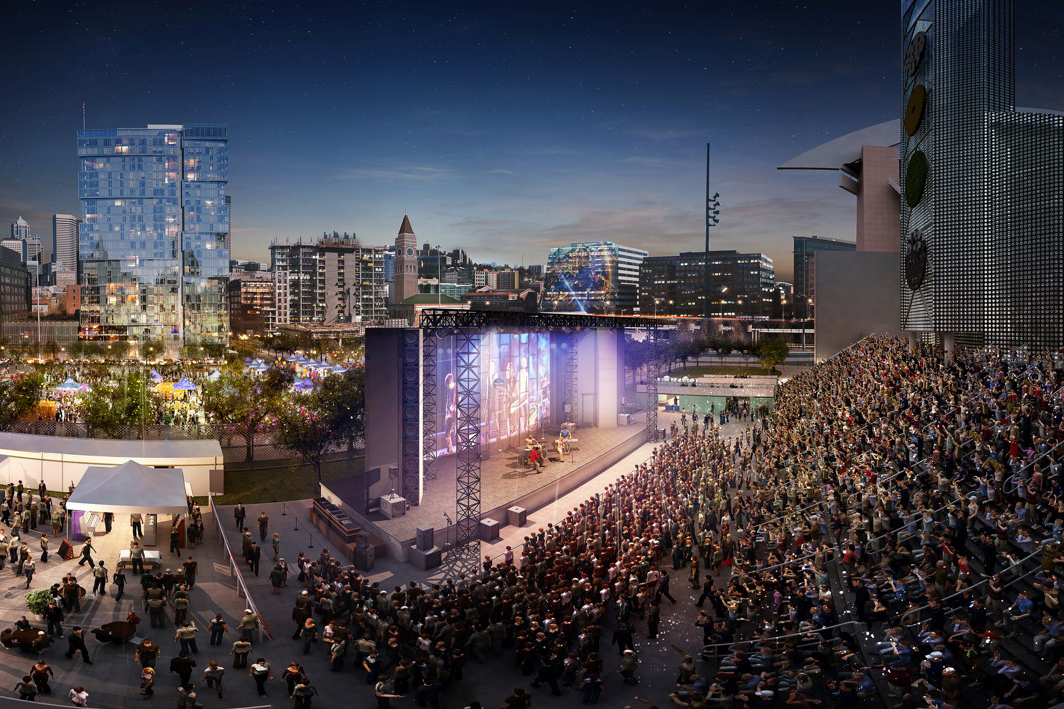On his final tour with Scream in 1990, just months before its implosion, Dave Grohl made it to Seattle. His Virginia-based hardcore band had made many cross-country trips before, but had always managed to miss the Emerald City, playing Tacoma, Olympia, or Portland instead. When he finally arrived that afternoon, he got such a strong vibe from the city that he even called his mother, a public-school teacher of 35 years who was looking for a place to retire and asked her son to do some scouting. “I called her the day I arrived and said, ‘Mom, Seattle is the fucking greatest.’ ”
That Seattle stop was significant for a more obvious reason. Kurt Cobain and Krist Novoselic, from a band called Nirvana, happened to be at Grohl’s gig that night, and when they needed a drummer a few months later, Buzz Osborne of the Melvins urged Grohl to call them. He did, and the rest is forever a part of rock & roll legend.
Grohl’s local history is explored in the latest episode of the HBO series he created, Sonic Highways. “I wouldn’t be here if it weren’t for Seattle,” he says via voiceover early in the episode, which airs this Friday at 11 p.m. “Seattle’s like my phantom limb. I still feel it.” The series documents the making of the latest Foo Fighters LP, which was recorded in eight cities, including Seattle, and presents a musical history of each stop, which informs the tracks recorded in each. Friday’s Seattle episode features a number of people integral to our musical evolution, including Chris Cornell, Nancy Wilson, Ben Gibbard, and Macklemore, as well as several longtime Sub Pop insiders like founder Bruce Pavitt and grunge producer Jack Endino. Robert Lang Studios, the last place Nirvana recorded and the first place to record the debut Foo Fighters album, also figures prominently in the episode.
One thing Grohl found magical about Seattle when he arrived was the rich underground music scene that was bubbling up. “When I was young, I liked the punk-rock bands from the Seattle area,” he tells Seattle Weekly. “Towards the late ’80s I discovered Tad and Mudhoney, and I’d already been listening to Soundgarden. I just gravitated towards the Sub Pop catalog, I think because I grew up listening to Slayer and Neil Young.
After brief stints with Novoselic in Tacoma and Cobain in Olympia, Grohl moved to West Seattle with pal Barrett Martin of Screaming Trees before eventually settling in the Richmond Beach area north of the city, just down the street from Robert Lang Studios. “When I moved there, I think I was 21 years old,” he says. “That’s a very formative time in your life, and for all of that to happen in that short period of time, it made such a huge impression on me. I lived there for maybe seven years, and every time I come back, I feel at home. Everybody there is so welcoming. If I walk down the street, I think people think I still live there, because they greet me like they’re my neighbor.” Grohl was particularly overwhelmed by the response to the unannounced Nirvana reunion at Paul McCartney’s Safeco Field performance last summer—the first hometown appearance by Nirvana’s surviving members in 15 years. “When we walked onstage, it was a beautiful feeling.”
Grohl got the idea for
Sonic Highways
after making the previous Foo Fighters record in his garage. He wanted to challenge the band by moving outside of their comfort zone, the studio where they’d been working for the past decade. He hoped the change in process would affect the output. “It worked,” he says. “When I listen to the last record now, it sounds claustrophobic and like a garage to me.”
The other inspiration for the series came after Grohl released his 2013 documentary Sound City, about the famed Los Angeles recording studio. Though he has no formal filmmaking training, the process came naturally. “I couldn’t tell you the dynamics or arcs or logistics of writing a story, because I’m a fucking high-school dropout,” he says, laughing, “But it seems pretty clear to me when you have some focused idea you want to achieve, you just put it together.” Grohl did the interviews for Highways in conjunction with recording. He’d spend the morning in the studio, then head out to do interviews in the afternoon, usually without prepared questions in hand or a formal agenda. “I didn’t really consider them interviews, they were just conversations,” he says. “And then they became lessons. I’d sit with someone and they’d tell me something I didn’t know, and I’d imagine myself as the viewer. That’s the intention of this series—to inform people and entertain them and give them stories that hopefully they’ll connect to and be inspired by.”
Though Grohl’s previous documentary projects have placed himself at the center, he’s looking forward to tackling topics he doesn’t have as close a connection to—if he can find the time away from his day job. “I’ve always enjoyed doing things that I don’t know how to do,” he says. “I didn’t take lessons to play the drums. I didn’t take lessons to play guitar. I don’t know how to make a documentary. But it’s exciting to try something that you’re not sure you can actually pull off.” He pauses for a moment, then adds, “That’s the Foo Fighters, by the way.”
music@seattleweekly.com
UPDATE: Around 10:30 a.m. today, the Foo Fighters announced their secret show: It all goes down this Friday at the Showbox. Information about tickets HERE.
Author’s note: The Foos recently announced a summer 2015 date at the Gorge; however, there’s a chance you’ll be able to see them in Seattle much sooner. Tied to previous Sonic Highways episodes, the band has played a surprise show in a tiny venue in each featured city. Nothing has been announced for Seattle yet, but keep your eyes peeled.
